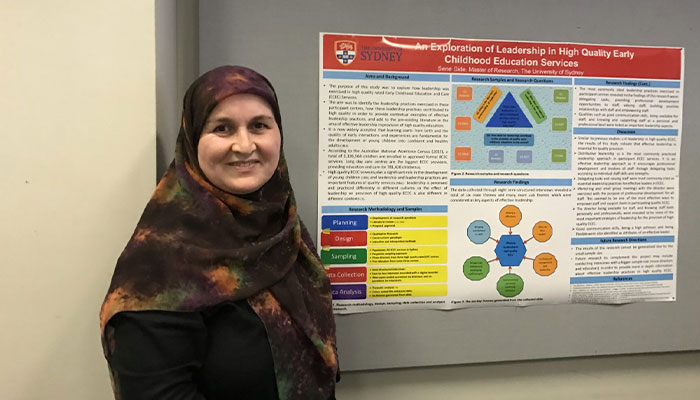Advocacy
Workforce
Early childhood educators ‘underpaid, undervalued’

Freya Lucas
Dec 08, 2021
Save
The NSW teachers' strike this week highlights the plight of another group of workers – low-paid early childhood educators who are undervalued for their critical role in raising the next generation, Macquarie University researchers say.
More than 200,000 early childhood educators in Australia are among the country’s lowest paid workers, earning $1000-$1425 a week, with many clocking up unpaid hours to make up for the lack of trained staff.“It’s a hugely undervalued and underpaid job,” says Associate Professor Sandie Wong of Macquarie School of Education. “And yet there’s a big increase in demand for early childhood services and we can’t attract people because of the poor conditions.”
Public school teachers in NSW are striking because of the workload and low salaries. In the early childhood sector — which is covered by a different union and isn’t on strike — low rates of pay, long hours and burnout lead to high levels of staff turnover.
While research shows the critical importance of the first five years of life, educators still face a lack of funding and appreciation of their important role.
If we all go to other jobs, who will stay to fight for our children, the next generation?“It’s very upsetting,” says Sene Gide, a Macquarie PhD student who is also a long daycare centre director. “Even most people in the community still see us as babysitters and don’t realise how important we are in children's education and development.”

Passion and commitment: PhD candidate Sene Gide, who runs a centre catering for 60 children under five.
The sector cares for 1.5 million children in Australia enrolled in long day care, preschools, kindergartens, family daycare and outside school hours care services. By 2024, if growth rates continue, the sector will need a further 37,000 early childhood educators, including 7000 university-trained teachers to meet demand, according to Department of Education data.
Commitment to the next generation
Gide has 23 years of experience in the field, two university degrees and runs a centre catering for 60 children under the age of five. She and her PhD supervisor Wong have seen many talented young people come to work in early learning for a few years and then leave for better opportunities.Gide says she personally has stayed in the profession for so long because of her passion and commitment. Also she wants to lead by example when she’s encouraging other teachers and educators everyday not to leave.
“I feel like if all of us leave then what will happen to these young children who in 20 years or so will be our future politicians, our doctors and our teachers. If we all go to other jobs, who will stay to fight for our children, the next generation?” says Gide.
Shortages and burnout
Just over one in 10 of all the childhood educators are university graduates. The rest have Certificate III and Diploma-level qualifications. The highest rate of pay that most early childhood educators will ever hope to earn in their career at the top award rate is $37.50 per hour.“A long day care centre must have at least one university-trained teacher supervising at all times but many can’t even find one and they are working with a ‘waiver’ from the government until they do,” Wong says. “This is a pretty dire situation.”
If we want to improve the retention of early childhood educators, then we have to do something to improve their wellbeing.At Gide’s centre, even when she contacts several temp agencies, she often struggles to find casuals to fill in for a day when one of her staff is sick or has to attend to a family issue.
The burden then falls on the other educators to work unpaid hours to fill in for them and cover the centre’s opening hours.
Focus on CALD educators
Wong’s research area is early childhood educators’ wellbeing and she’s recently completed a survey of 900 educators and is currently compiling the data.“If we want to improve the retention of early childhood educators, then we have to do something to improve their wellbeing. We found very high rates of burnout and other issues such as workforce bullying,” she says.
At Gide’s workplace, she says that a lot of her employees are still burned out from the impact of COVID-19.
“For two years, we’ve been the essential workers taking care of the children of the other essential workers so they can keep on working. Many of them had to work longer-than-usual hours, which meant we had to too,” she says.
Gide’s PhD is focusing on collecting data about culturally and linguistically diverse (CALD) early childhood educators.
“I was really shocked that when I looked at national and state-level government data, there was no breakdown about how many early childhood workers are from a CALD background.
"How can we hope to improve the conditions of CALD workers if we don’t keep statistics on them? I hope to change that with my research,” she says.
Sandie Wong (pictured) is Associate Professor at Macquarie School of Education. This story was first published on the Macquarie University research news platform, lighthouse.mq.edu.au.
Don’t miss a thing
Related Articles



















